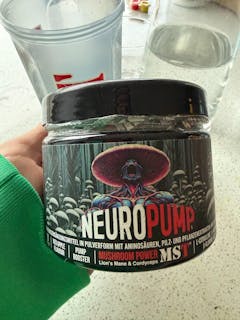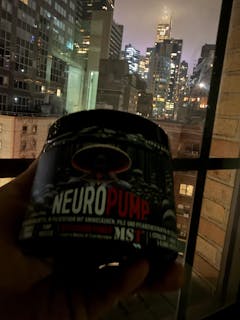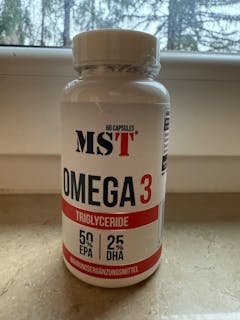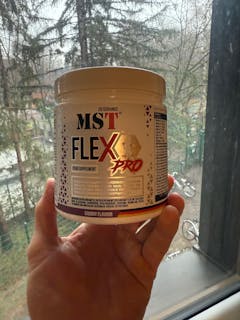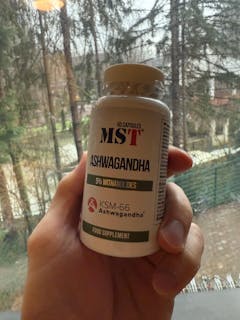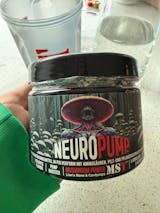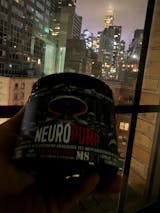How long does magnesium take to work?
Magnesium is an essential mineral that plays a vital role in numerous bodily functions. In this comprehensive overview, we will explore different forms of magnesium, including magnesium glycinate, magnesium bisglycinate, magnesium chelate, magnesium malate, and magnesium citrate. We’ll also discuss important topics such as buying magnesium glycinate in the UK, using magnesium for sleep, the benefits of magnesium tablets, the risks of magnesium overdose, and how long it takes for magnesium to take effect. Whether you're searching for the best magnesium supplement or curious about magnesium-rich foods, you can find high-quality magnesium tablets in the UK to support your health.
Magnesium Citrate and Its Side Effects
Magnesium citrate is a popular form of magnesium, often used to relieve constipation. This specific form is highly appreciated for its solubility and quick action. However, despite its effectiveness, magnesium citrate can cause some side effects. In this section, we’ll explore the common side effects and potential risks of taking magnesium citrate. We’ll also touch on the role of pure magnesium and its presence in magnesium tablets from UK brands, ensuring that you can make the right choice for your health.
Benefits of Magnesium Citrate
Magnesium citrate is often used for short-term relief of constipation, as it draws water into the intestines and softens the stool. It’s also used in preparation for medical procedures involving the bowel.
Buying Magnesium Glycinate in the UK
When buying magnesium glycinate, especially in the UK, there are several factors to keep in mind. The quality of the magnesium supplement, the place of production, and its purity are all important for its effectiveness.
What to Look for When Buying Magnesium Glycinate?
- Purity: Ensure the product contains no unnecessary fillers or additives.
- Place of Production: UK-based products or those from reputable brands often meet high standards of quality. Look for certifications and transparency in the production process.
- Customer Reviews and Certifications: Read reviews and check for any certifications that can validate the quality of the magnesium glycinate supplement.
Magnesium Bisglycinate and Sleep
Magnesium bisglycinate is known for its ability to improve sleep quality. This is because magnesium has a calming effect on the nervous system and helps relieve muscle tension, making it a great choice for those looking to relax before bed.
How Magnesium Bisglycinate Helps with Sleep
- Relaxation: The glycine, an amino acid bound to magnesium, promotes relaxation, making it easier to fall asleep.
- Stress Reduction: Magnesium is known to lower cortisol levels, a hormone linked to stress.
- Better Sleep Quality: Many people who take magnesium bisglycinate report a deeper, more restful sleep, making it one of the best magnesium supplements for sleep.
Magnesium Citrate Side Effects
While magnesium citrate is effective for relieving constipation, it can cause some side effects, especially when taken in higher doses.
Possible Side Effects of Magnesium Citrate
- Diarrhoea: As magnesium citrate acts as a laxative, some people may experience diarrhoea as a side effect.
- Stomach Discomfort: In some cases, magnesium citrate can lead to stomach cramps or discomfort.
- Interactions with Medications: Magnesium supplements can interfere with the absorption of certain medications, so it's always best to consult a healthcare professional before use.
Buying Magnesium Malate in the UK
Magnesium malate is a compound of magnesium and malic acid, and it is highly valued for its bioavailability. Malic acid is naturally found in fruits and plays a key role in energy production. Magnesium malate is often used to support muscle and nerve function, reduce fatigue, and improve general well-being. It is also helpful for those dealing with chronic fatigue syndrome (CFS) or fibromyalgia. When buying magnesium malate in the UK, ensure you’re choosing a high-quality magnesium supplement from a reputable source.
Magnesium Overdose
While magnesium is important for health, taking too much can lead to health problems.
Symptoms of Magnesium Overdose
- Diarrhoea: The most common symptom of magnesium overdose.
- Low Blood Pressure: In severe cases, an overdose can cause dangerously low blood pressure.
- Heart Problems: Very high doses of magnesium can interfere with heart function, leading to arrhythmias.
Magnesium Citrate Side Effects
Though magnesium citrate is well-tolerated by most, some people may experience side effects, such as:
- Diarrhoea: Magnesium citrate can cause diarrhoea due to its osmotic effect, drawing water into the intestines and speeding up bowel movements. In large doses, this can result in dehydration and electrolyte imbalances.
- Stomach Cramps: Some people report cramping or discomfort after taking magnesium citrate, which can be caused by irritation of the stomach lining.
- Bloating and Gas: The osmotic effect can also lead to increased gas production, causing bloating in some individuals.
- Low Blood Pressure: In rare cases, high doses of magnesium citrate may lower blood pressure, especially for those with already low blood pressure or those taking blood pressure-lowering medications.
- Interactions with Medications: Magnesium citrate may interfere with the absorption of medications such as antibiotics or osteoporosis drugs. It is recommended to leave a two-hour gap between magnesium supplements and other medications.
Pure Magnesium and Its Importance
“Pure magnesium” refers to the actual magnesium ion content in a compound. It’s important to distinguish between the total amount of a magnesium supplement and the amount of pure magnesium to ensure proper dosing.
Magnesium Supplements in the UK
Magnesium citrate is just one of many forms of magnesium available in supplements. Other forms include magnesium oxide, magnesium glycinate, magnesium bisglycinate, and magnesium taurate, all with different properties and bioavailability. It’s important to choose the right magnesium supplement for your needs, especially if you’re looking for specific benefits like improved sleep, muscle support, or energy production.
Foods High in Magnesium
In addition to taking magnesium tablets, you can also increase your magnesium intake by consuming magnesium-rich foods. Some of the best foods high in magnesium include spinach, nuts, seeds, whole grains, and legumes. A balanced diet, along with magnesium supplements, can help meet your daily magnesium needs.
When to Take Magnesium?
Taking magnesium supplements can vary based on your individual needs and the health benefits you’re looking for. Here are some general recommendations for when to take magnesium in the UK:
Time of Day:
- Morning: Some people prefer to take magnesium tablets in the morning to support energy levels and muscle health throughout the day.
- Evening: Others choose to take magnesium in the evening, as it can promote relaxation and improve sleep quality, especially magnesium glycinate or bisglycinate.
After Meals:
- With or After Meals: Magnesium should ideally be taken with or after a meal to improve absorption and avoid stomach discomfort.
Dividing the Doses:
- Splitting the Dose: If you are taking higher doses of magnesium, it might be beneficial to divide it throughout the day to maximise absorption and minimise the risk of diarrhoea.
Specific Health Goals:
- For Sleep: To improve sleep quality, it’s recommended to take magnesium bisglycinate or magnesium glycinate about 30 minutes before bed.
- For Muscle Relaxation: If you’re taking magnesium to help with muscle cramps or tension, it’s best to take it after physical activity.
Scientific Support
Studies have shown that taking magnesium at certain times can enhance its benefits:
- Morning Intake: Research suggests that taking magnesium in the morning can improve energy metabolism and reduce fatigue.
- Evening Intake: Another study found that magnesium glycinate taken before bed can improve sleep quality in people suffering from insomnia.
These are general recommendations, and it’s always best to consult with a healthcare provider to determine the optimal magnesium supplement strategy for your individual needs.
Why Choose High-Quality Magnesium Supplements in the UK?
- Quality Control: Strict standards and high-quality ingredients.
- Customer Reviews: Positive feedback from users confirming the benefits of magnesium supplements.
- Innovation: Ongoing research and development of improved magnesium supplement formulas.
- UK Availability: Many high-quality magnesium tablets are available online or in stores across the UK.
Magnesium is an essential mineral available in various forms to suit different health needs. Whether you're looking for magnesium bisglycinate for better absorption, magnesium glycinate for improved sleep, or magnesium citrate to relieve constipation, it’s crucial to choose the right magnesium supplement for your specific goals.
When buying magnesium tablets or supplements in the UK, it’s important to prioritize quality and purity. Opt for products from trusted UK brands that meet high manufacturing standards. Look for magnesium supplements that are available in reputable stores or online, where you can compare reviews and prices. With a wide range of magnesium supplements available in the UK, including tablets, powders, and magnesium-rich foods, you can easily find a product that suits your needs.
Always consult with a healthcare professional if you have concerns about magnesium dosage, potential overdose, or interactions with medications, ensuring you get the most out of your magnesium supplement.













